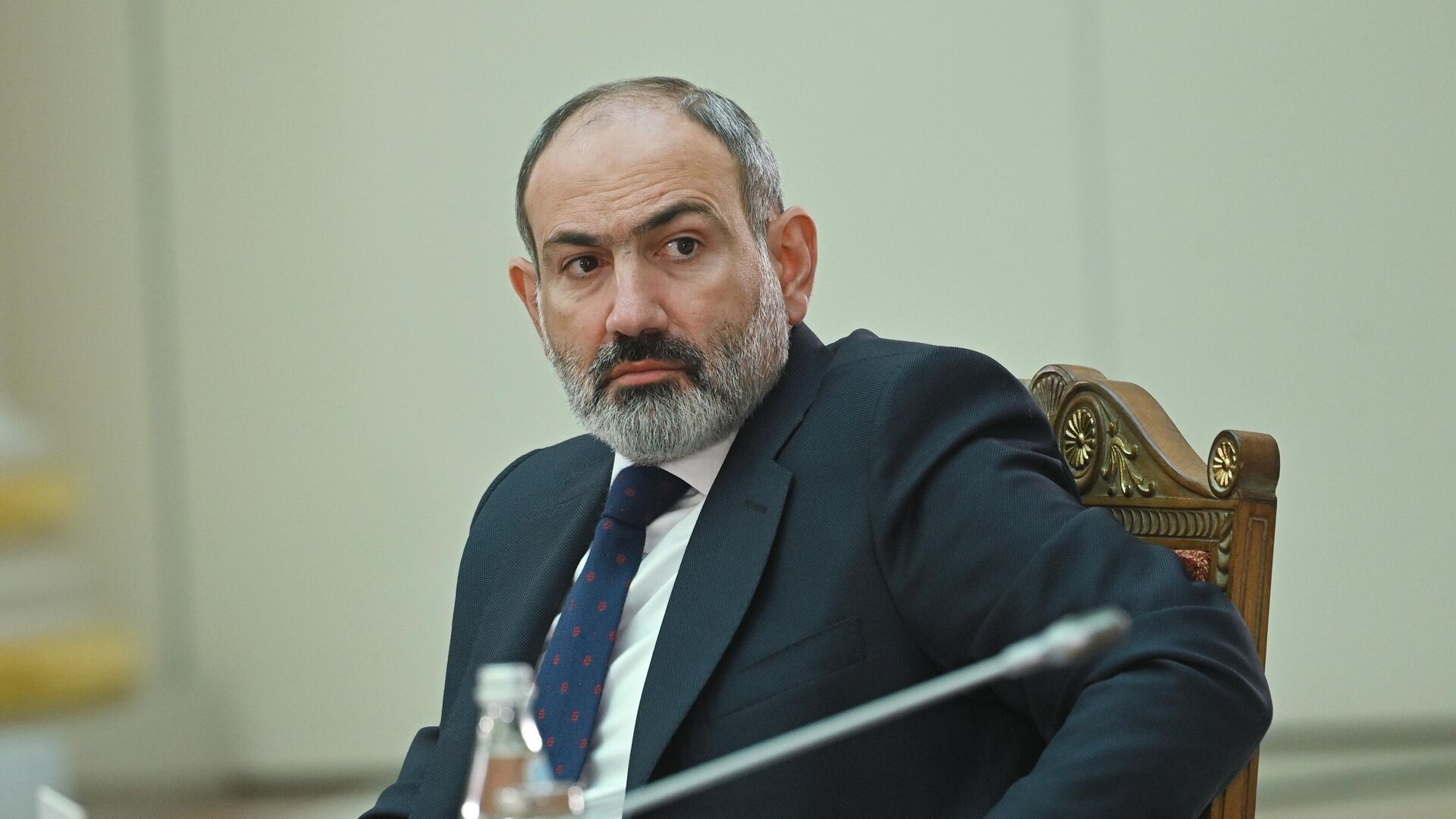https://sputnikglobe.com/20220923/pashinyan-says-peace-treaty-possible-if-azerbaijan-recognizes-armenias-territorial-integrity-1101114256.html
Pashinyan Says Peace Treaty Possible If Azerbaijan Recognizes Armenia's Territorial Integrity
Pashinyan Says Peace Treaty Possible If Azerbaijan Recognizes Armenia's Territorial Integrity
Sputnik International
MOSCOW (Sputnik) - Recognition of Armenia's territorial integrity in its internationally recognized boundaries by Azerbaijan could allow both countries to sign... 23.09.2022, Sputnik International
2022-09-23T06:17+0000
2022-09-23T06:17+0000
2022-09-23T06:17+0000
armenia
azerbaijan
nikol pashinyan
https://cdn1.img.sputnikglobe.com/img/07e6/04/01/1094376696_0:0:3071:1728_1920x0_80_0_0_fba30c6b3e778a051721ea760c950da5.jpg
In any other case Azerbaijan will use the border delimitation issue to make new territorial claims and escalate the situation, the Armenian prime minister expects.Pashinyan considers a comprehensive settlement of the Nagorno-Karabakh conflict to be one of the key factors of regional stability, where the rights and security of Armenians living in the region must be guaranteed.Armenia's aim is the establishment of long-term stability, security and peace and the country is committed to continuing diplomatic efforts to reach this goal, Pashinyan said.Hostilities broke out on the Armenian-Azerbaijani border in the early hours of September 13, in an area unrelated to the disputed Nagorno-Karabakh region. Azerbaijan said it started an offensive responding to an Armenian "provocation." Armenia said Azerbaijani forces shelled Armenian civilian towns with no military infrastructure. Both countries agreed to a ceasefire later on September 13, which failed overnight. Another ceasefire went into effect late on September 14.The long-standing conflict in Nagorno-Karabakh flared up in September 2020, marking the most serious escalation in relations between Armenia and Azerbaijan in years. The hostilities ended with a Moscow-brokered trilateral declaration signed in November 2020. Armenia and Azerbaijan agreed to completely cease fire and exchange prisoners. However, the situation in the region has remained tense, with intermittent clashes between the two countries.
armenia
azerbaijan
Sputnik International
feedback@sputniknews.com
+74956456601
MIA „Rosiya Segodnya“
2022
Sputnik International
feedback@sputniknews.com
+74956456601
MIA „Rosiya Segodnya“
News
en_EN
Sputnik International
feedback@sputniknews.com
+74956456601
MIA „Rosiya Segodnya“
Sputnik International
feedback@sputniknews.com
+74956456601
MIA „Rosiya Segodnya“
armenia, azerbaijan, nikol pashinyan
armenia, azerbaijan, nikol pashinyan
Pashinyan Says Peace Treaty Possible If Azerbaijan Recognizes Armenia's Territorial Integrity
MOSCOW (Sputnik) - Recognition of Armenia's territorial integrity in its internationally recognized boundaries by Azerbaijan could allow both countries to sign a peace treaty, Armenian Prime Minister Nikol Pashinyan said on Friday.
"If Azerbaijan would recognize territorial integrity of Armenia, not theoretically, but concretely, I mean the integrity of our internationally recognized territory of 29,800 square kilometers [11,500 square miles], it would mean that we can sign a peace treaty by mutually recognizing each other’s territorial integrity," Pashinyan said, addressing the 77th session of the UN General Assembly.
In any other case Azerbaijan will use the border delimitation issue to make new territorial claims and escalate the situation, the Armenian prime minister expects.
"Azerbaijan is keeping under occupation tangible territories of Armenia, and as I said the risk of new aggression by Azerbaijan remains very high," Pashinyan said.
Pashinyan considers a comprehensive settlement of the Nagorno-Karabakh conflict to be one of the key factors of regional stability, where the rights and security of Armenians living in the region must be guaranteed.
"We call to support the secure and unhindered access of UN humanitarian agencies to Nagorno-Karabakh in order to assess the humanitarian, human rights situation and ensure protection of cultural heritage on the ground," the Armenian prime minister said.
Armenia's aim is the establishment of long-term stability, security and peace and the country is committed to continuing diplomatic efforts to reach this goal, Pashinyan said.
Hostilities broke out on the Armenian-Azerbaijani border in the early hours of September 13, in an area unrelated to the disputed Nagorno-Karabakh region. Azerbaijan said it started an offensive responding to an Armenian "provocation." Armenia said Azerbaijani forces shelled Armenian civilian towns with no military infrastructure. Both countries agreed to a ceasefire later on September 13, which failed overnight. Another ceasefire went into effect late on September 14.
The long-standing conflict in Nagorno-Karabakh flared up in September 2020, marking the most serious escalation in relations between Armenia and Azerbaijan in years. The hostilities ended with a Moscow-brokered trilateral declaration signed in November 2020. Armenia and Azerbaijan agreed to completely cease fire and exchange prisoners. However, the situation in the region has remained tense, with intermittent clashes between the two countries.



